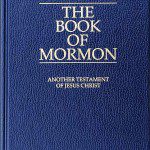By Fr. Mike Boutin
 Next Sunday, May 23rd, is the Feast of the Pentecost. Prayers and music should echo "Come Holy Spirit" while also reflecting the totality of the season of Easter.
Next Sunday, May 23rd, is the Feast of the Pentecost. Prayers and music should echo "Come Holy Spirit" while also reflecting the totality of the season of Easter.
Music such as "Come Holy Ghost," "Veni Sancte Spiritus," "Veni Creator Spiritus," and other Spirit music is appropriate. The response to the Prayers of the Faithful could effectively be "Come Holy Spirit!"
The double Alleluia should be sung at the dismissal, as at Easter. The Sequence should be sung before the singing of the Alleluia. Consider using the Sequence during a protracted procession with the Book of the Gospels through the entire assembly, reaching the altar as the Alleluia begins. The procession could include dancers and incense, and stop at various places within the assembly, since the Pentecost Sequence is quite long.
Note that there is a different Mass for the Vigil of Pentecost, with its own Mass proper and readings. The liturgical books also make provision for a longer Pentecost Vigil, with multiple readings. It certainly isn't appropriate to simply do this unannounced at the usual Saturday 4 p.m. Mass, but with some catechesis and advance notice, this might be a welcome addition to the parish's Pentecost liturgies. Consider scheduling it at 8 p.m., after the usual afternoon Vigil Mass, followed by an international "spirit" feast. Invite the various ethnic groups in the parish to come and bring typical foods of their homeland.
On the Sundays of the Easter season, the Penitential Rite could be replaced by a Thanksgiving over the Easter Water and a Sprinkling Rite. The water for the Sprinkling should be taken directly from the font where it was blessed at the Easter Vigil. Consider using a bunch of greens tied together with florist tape and ribbon as an aspergillum. Prayers for neophytes should be included in all parish Masses throughout the Easter season.
Be careful when preaching on the first reading from the Acts of the Apostles during the Easter season. The expression "the Jews" as used in Acts or the Gospel of John needs to be contextualized. See God's Mercy Endures Forever, the USCCB document on preaching about the Jews for important insights.
Click here for next Sunday's readings.
Here are a few good sites for exegesis (an explanation of what the biblical texts are trying to say):
General Intercessions (Prayers of the Faithful):
The general intercessions at Mass should be written in the community that will pray them. Don't rely on canned prayers. Your community deserves someone who will pray about what this particular community's needs are this week, and then help them to articulate their needs and the needs of the larger community.
General intercessions should be just that: general enough that everyone can pray them. Prayers for the world, for the local community, for the sick, for peace, and for the dead should be numbered among the prayers you articulate. Adding a list of the local sick and deceased is a good way to make these prayers the prayers of this local community. Here are some general principles and a good example of general intercessions for next Sunday.
When I am preparing to preach, my process includes a number of pieces: 1) prayer with the scriptures 2) a weekly Bible study with parishioners on Tuesday morning that forces me to interact with the texts before Friday! 2) looking at a few different "homily helps" not in order to use a canned homily (honestly, I've never done that), but instead, sometimes to find a different angle, or a starter story, or some particularly useful insight.
The sources I use include:
- The Preachers' Exchange is a great website for Catholic preachers, by Jude Siciliano, OP. Well worth adding to your Favorites list.
- Celebration, published by NCR, is my favorite homily preparation type service, though it describes itself as a "comprehensive worship resource." It is an ecumenical and multi-cultural resource, has very fine scriptural scholarship and homily starters, interesting and useful articles and features, a daily Mass supplement. Overall, a lot of liturgical and preaching bang for your hard-earned buck!
- Prepare the Word is an online resource published by True Quest, whose strongest asset is Alice Camille, one of its writers, but whose weakest link is customer service and subscriptions.
- Connections, published by Media Works and edited by Jay Cormier, is a great resource: a couple of short stories, fables, news events that relate (some more, some not quite so much!), but which provide only a springboard for your own preaching...




